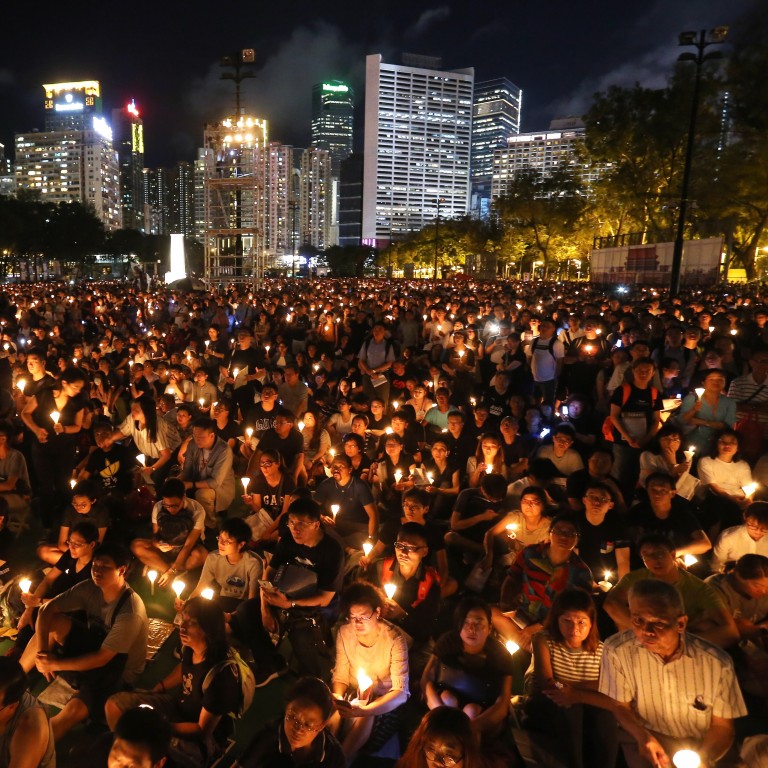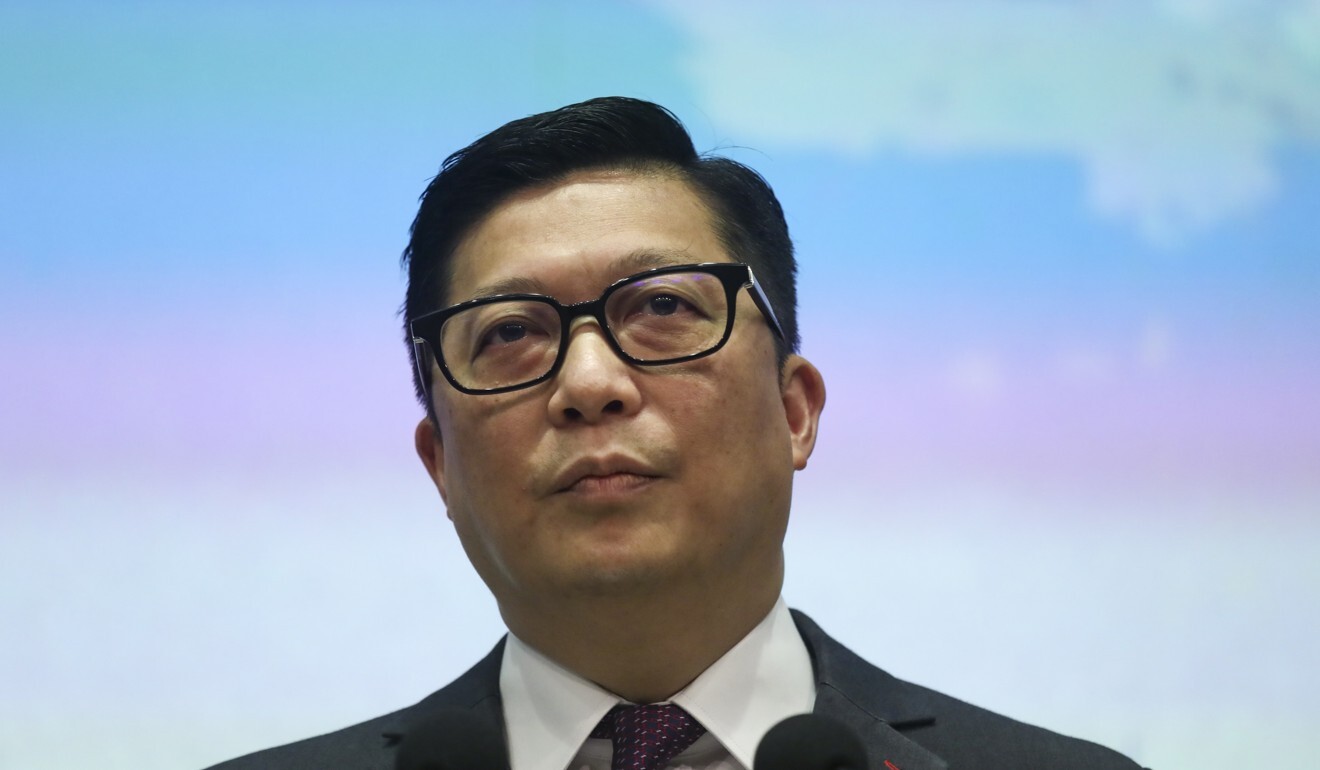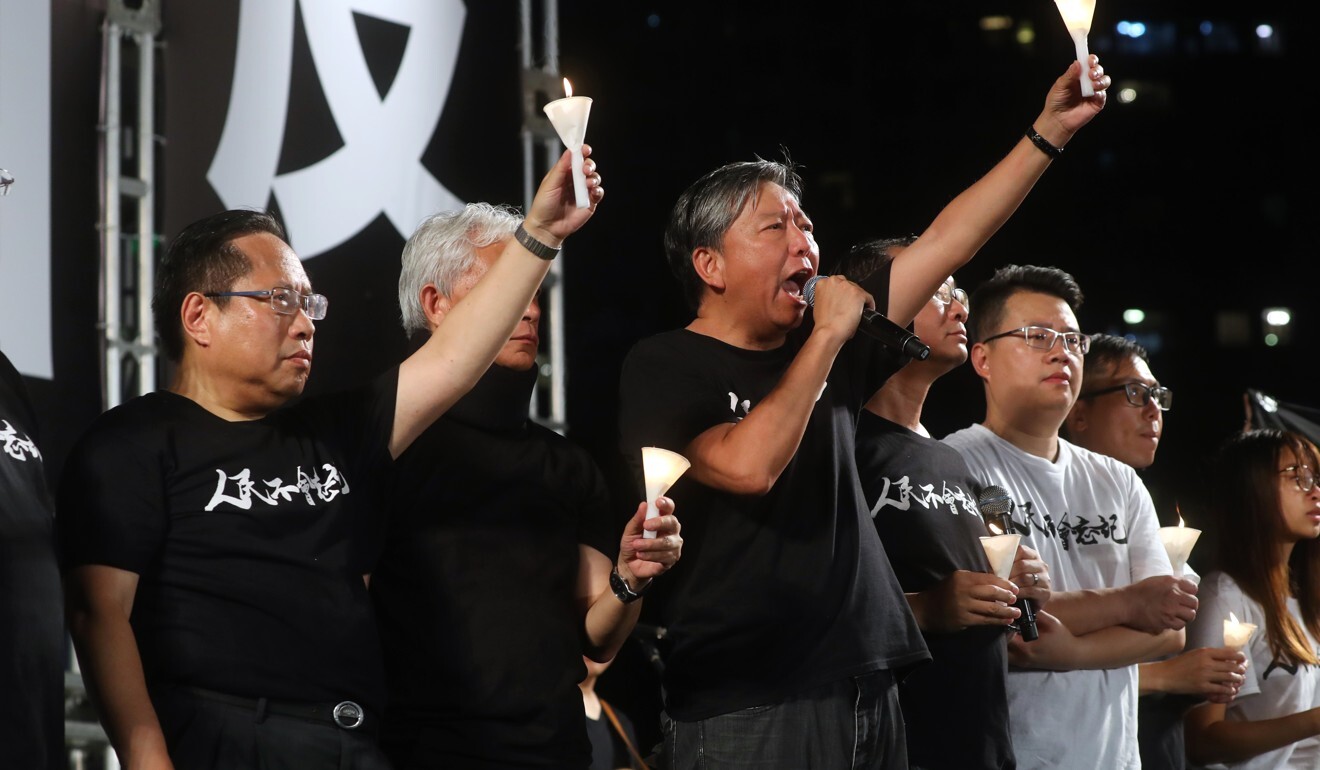
Hong Kong top official stops short of saying whether residents marking Tiananmen Square crackdown will breach national security law
- Chris Tang cites ‘multidimensional’ approach to tackling such cases, after authorities quoted by June 4 vigil organiser as adopting new Beijing labelling
- Former police commissioner also says ordinary residents who joined previous vigils should not fear as long as they have not endangered national security
Hong Kong’s security chief has stopped short of saying whether residents commemorating the Tiananmen Square crackdown in future will be in trouble, after city authorities were quoted to have adopted Beijing’s labelling of the 1989 student-led movement as a “counter-revolutionary rebellion” that sought to subvert the country.
Asked if the description effectively meant it would be illegal for residents to participate in or organise vigils commemorating the crackdown in future, Chris Tang Ping-keung, formerly the city’s police commissioner, did not deny the new definition, saying he could not give a simple answer as it required a “multidimensional” analysis to determine whether a person had broken the law.
“We do not only look into the person’s goal, but also one’s role, the situation at the time, what one has said and done alongside one’s intention,” he told a television programme that aired on Sunday.

The Hong Kong Alliance in Support of Patriotic Democratic Movements of China, the organiser behind the annual June 4 vigil marking the crackdown, voted to disband on Saturday after being accused by police of violating the national security law.
Three former and current leaders of the alliance were charged with subverting state power earlier this month, and have been remanded in custody.
Hong Kong alliance behind June 4 vigil a thorn in Beijing’s side for decades
Alliance vice-chairwoman Chow Hang-tung, who is among the trio charged, had claimed local authorities had adopted Beijing’s labelling. Chow was responding to an earlier letter by Tang asking for information as part of his decision to revoke the alliance’s company registration over alleged national security crimes.
Chow quoted authorities as saying the Tiananmen Square movement was a “counter-revolutionary rebellion” that sought to overthrow the Chinese Communist Party and subvert the socialist country, and that Hong Kong’s annual candlelight vigil “legitimised, glorified or justified” the “incident”. She denied both accusations.

Citing ongoing judicial proceedings, Tang on Sunday refused to go into greater detail when grilled on the issue.
He said Hongkongers’ rights of assembly and expression were both protected by the Basic Law, the city’s mini-constitution, as well as by the Beijing-decreed national security law.
“There will be no problem if you express your opinions through legal means,” Tang said, but warned of consequences if there were acts of subversion. He added that ordinary residents who joined previous vigils did not have to worry as long as they had not endangered national security or served the “separatist” cause.
Tiananmen Square vigil group in Hong Kong denies it threatens national security
Separately, Executive Council member Ronny Tong Ka-wah said he did not understand the recent decisions of several civic groups to fold, as well as their attempts to blame the political environment and the national security law for their disbandment.
The alliance is the latest opposition group to close down following Beijing’s imposition of the national security law last year. Over the past month, the Professional Teachers’ Union and the China Human Rights Lawyers Concern Group had made similar moves.
The Confederation of Trade Unions has also started the process to dissolve amid warnings from authorities and attacks from pro-Beijing media over alleged national security violations.
If the groups had not broken any laws, Tong said, there would be no reason for them to dissolve.
Tong, previously with the Civic Party who had participated in June 4 vigils in the past, said it was a pity to see the alliance wrap up. But he added it was the responsibility of such groups to review if their operations had been too politicised, which held a chance of breaking the law.
Following the alliance’s special meeting on Saturday, Richard Tsoi Yiu-cheong, secretary of the group’s company, apologised to the families of those who lost their lives in the 1989 crackdown in Beijing for not being able to organise annual vigils, stressing that people’s memories and conscience could not be wiped out.

